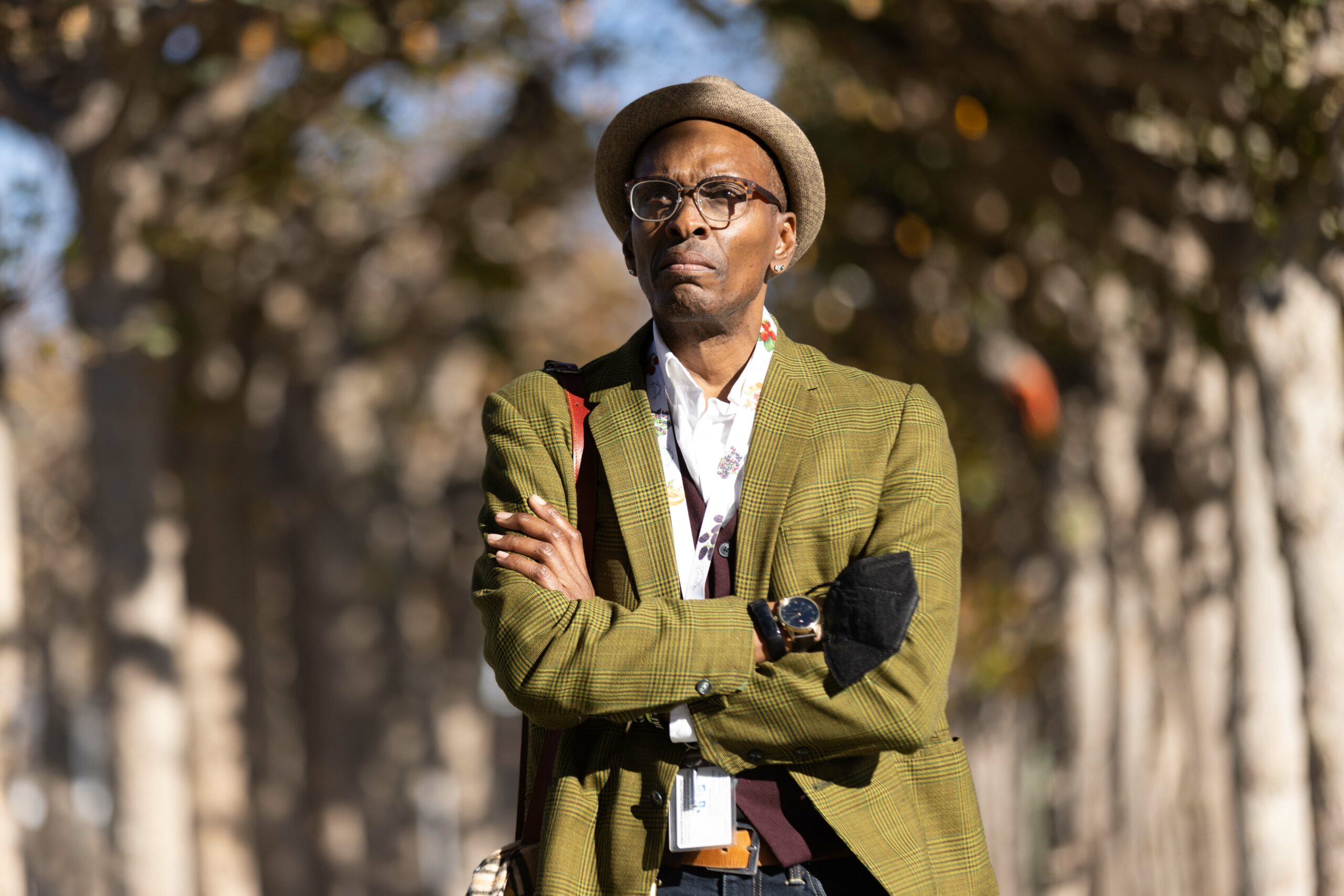A financially troubled nonprofit relied on by the city for social services threw itself a party earlier this month, honoring the organization’s former CEO while overlooking a client with mental illness who had been asked to speak at the event.
Positive Resource Center, the administrative arm of the drug and mental health rehab nonprofit Baker Places, held an annual fundraising gala at the Four Seasons Hotel on Nov. 4, bestowing a “Lifetime Achievement Award” upon its former CEO Brett Andrews, who left in a cloud of controversy shortly before the organization asked the city for a bailout.
But the festivities, which a flyer described as “electrifying,” left reverberations of trauma for one of the organization’s clients, Tracy Boggs.
“There was nothing but alcohol all over the place,” said Boggs, who has been sober for three years. “My purpose there wasn’t to go have a drink. My purpose was to share my story.”
Boggs, a gay Black man who suffers from post-traumatic stress disorder, depression and general anxiety disorder, said he had previously been invited to speak at the gala and had prepared remarks, but was never asked to speak and ultimately left, sending him into a spiral of anxiety and depression.
In an email exchange seen by The Standard, Positive Resource Center chief development officer Randi Paul told Boggs that a representative from the organization had attempted to call him prior to the event because they found another client to speak.
“I apologize for our part in it,” Paul said. “It sounds to me like it was quite traumatic.”
Boggs said the experience made him lose faith in the nonprofit’s management—a feeling that is echoed by other clients who complain of a “top-heavy” administration coupled with an exodus of frontline staff and potentially shuttering programs amid financial collapse.
Money Problems
Just a month before the gala, PRC and Baker Places—two related nonprofits that announced a merger in 2016 that was never completed—told the city that without a $4.2 million cash infusion they would be forced to “immediately notify staff of layoffs, discontinue intakes and wind-down operations.”
The ultimatum enraged city supervisors, who had begrudgingly awarded the nonprofit a $1.2 million emergency grant along with other financial concessions only three months earlier.
Tax returns and audits of the nonprofit showed signs of financial mismanagement for years, logging a $1.9 million deficit in 2017 just a year after receiving a $15 million contract extension. And one month before city officials awarded the nonprofit an emergency grant in June, the city had granted Baker Places a $65 million, five-year contract extension.
A city database lists close to $70 million in contract awards for PRC and Baker Places for this fiscal year.
Andrews had collected a $293,230 salary from the nonprofit in the year leading up to his resignation. Lisa Pratt, a top Department of Public Health official, had also been collecting an unauthorized $123,000 salary working 20 hours a week for Baker Places on top of her city salary. Pratt has since resigned from the nonprofit position and the city has launched an investigation into her dual employment.
The Department of Public Health has indicated that they are working to find alternative placements for clients in five of PRC and Baker Places’ programs: Acceptance Place, Ferguson Place, Assisted Independent Living Program and Joe Healy Detox Center.
The nonprofit HealthRight360 has already picked up the remaining contracts for the Joe Healy Detox Center as well as 10 beds at Acceptance Place, a substance use rehab for gay men.
In the Dark
Boggs recalled sitting through several standing ovations for Andrews during the Friday night gala.
“The following day is when everything sunk in; it was like getting the wind knocked out of me,” he said. “My stability is what allows me to maintain sobriety.”
Boggs credited the nonprofit’s frontline staff for helping him to recover from the traumatic experience—but he joined other clients in describing a lack of faith in the organization’s management.
PRC and Baker Places oversee 215 drug and mental health treatment beds and provide service for around 5,000 clients annually.
Clients from the nonprofits’ Assisted Independent Living Program say they are still waiting on a plan from the administration, telling The Standard that they found out about the impending program changes through news reports.
PRC and Baker Places declined to participate in an interview, despite an offer to extend the deadline for publication. Andrews also could not be reached by The Standard.
An Oct. 11 letter from interim CEO Chuan Teng addressed to clients said that “no concrete decisions have been made yet about which programs will be transferred and in what timeframe.”
At some of the remaining programs, patients with a range of psychiatric conditions are anxiously entering the holiday season.
“Anybody who knows anything about mental health or substance abuse knows that the holidays are a very, very difficult time for people,” said Kerrington Osborne, a client at the Assisted Independent Living Program.
Osborne said that he plans to take the bar exam in July but worries that if the program closes it could throw a wrench in those goals.
The last time he faced homelessness he entered a deep depression that culminated in suicidal ideations and a psychiatric hold. Other clients said that the uncertainty has been detrimental to their various psychiatric conditions.
“All of this is bringing up a fear of being on the streets. I personally could not deal with the strain of being homeless,” Osborne said. “I think the city let us down […] Given the mess that Baker is in, who would want to take this program.”
